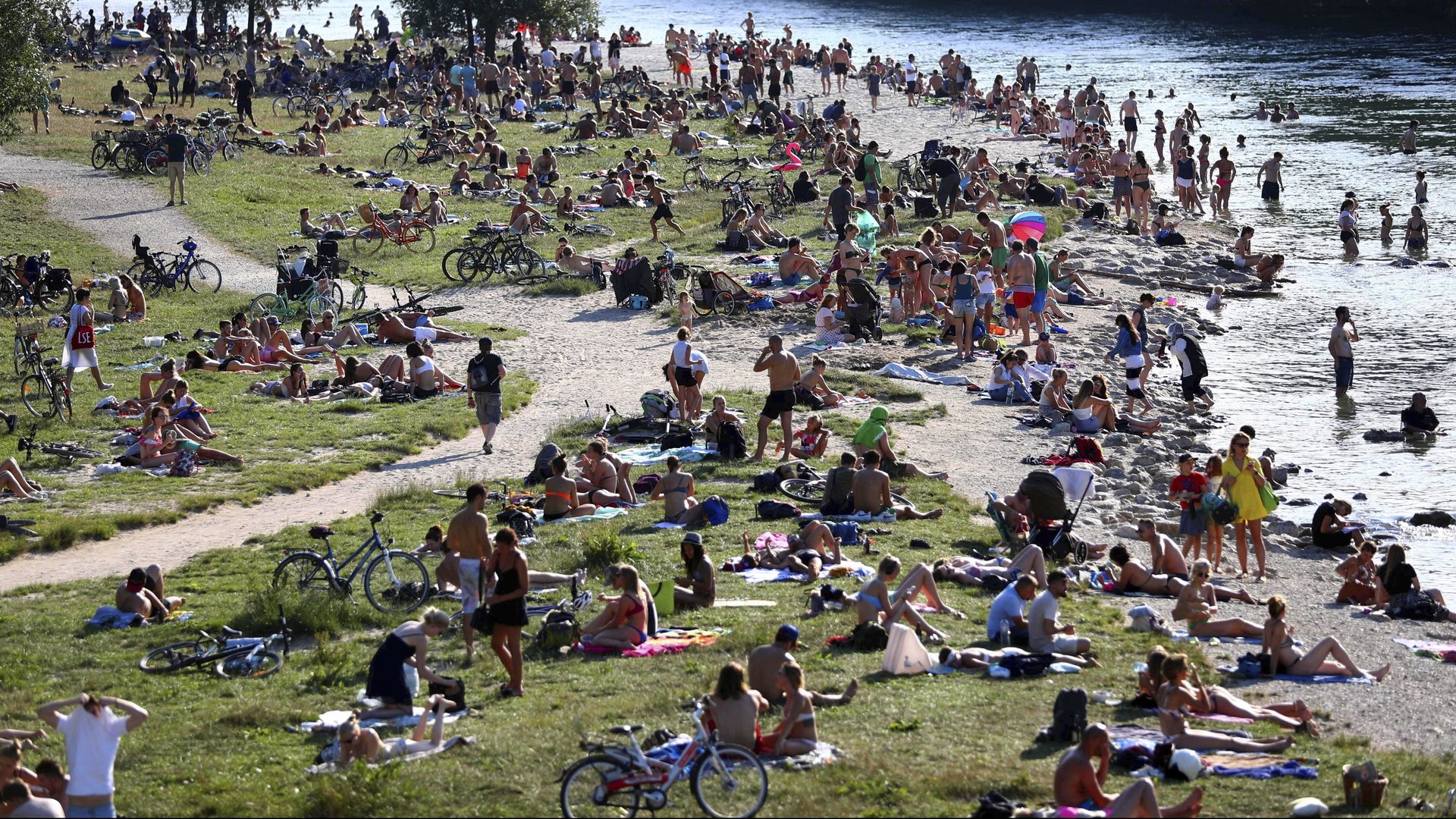It’s official: Climate change fueled Europe’s sweltering heat wave in July
At this point, we know enough about climate change to know that, on average, it’s making high-heat days more common and more extreme. But “attribution science,” or the science of pinning specific weather events to climate change, is getting better all the time. It’s an impactful way to internalize the effect of human-driven climate change on these extreme events—like last week’s record-breaking heat wave.


At this point, we know enough about climate change to know that, on average, it’s making high-heat days more common and more extreme. But “attribution science,” or the science of pinning specific weather events to climate change, is getting better all the time. It’s an impactful way to internalize the effect of human-driven climate change on these extreme events—like last week’s record-breaking heat wave.
During the last week of July this year, Europe positively roasted. Several people died due to excessive heat. France broke its heat records by an unheard-of three degrees Celsius in places, and Belgium and the Netherlands hit temperatures above 104 degrees Fahrenheit (40 degrees C) for the first time in recorded history. Parts of Greenland were on fire.
Thanks to rapidly-improving attribution science, we know exactly what drove that heat wave. An attribution study (pdf) published Friday (Aug 2) by meteorologists and climatologists at the UK Met Office, Oxford University, and several other European institutions found that across all European locations they looked at, the heat wave “would have been 1.5 to 3 ºC cooler” if it were not for the climate change that has taken place since the industrial revolution.
The extreme heat in France and the Netherlands was made at least 10 times—and possibly more than 100 times—more likely by climate change.
“Over France and the Netherlands, such temperatures would have had extremely little chance to occur without human influence on climate,” the authors of the report wrote.
In the UK and Germany, climate change made the likelihood of a heat wave of that magnitude at least three times higher, and possibly more than 10 times higher.
The speed of study itself—published just a week after the event it is analyzing—is a testament to how much attribution science has progressed. In 2016, an attribution study that looked at how torrential rains that led to deadly flooding in Louisiana were worsened by climate change came out “less than a month” after the rains themselves, which was considered remarkably fast at the time.
Overall, July 2019 was around 1.2°C warmer than the average temperatures in July during the pre-industrial era, according to World Meteorological Organization data.
“If we do not take action on climate change now, these extreme weather events are just the tip of the iceberg. And, indeed, the iceberg is also rapidly melting,” United Nations Secretary-General António Guterres said in a statement released along with the data. “Preventing irreversible climate disruption is the race of our lives, and for our lives. It is a race that we can and must win.”